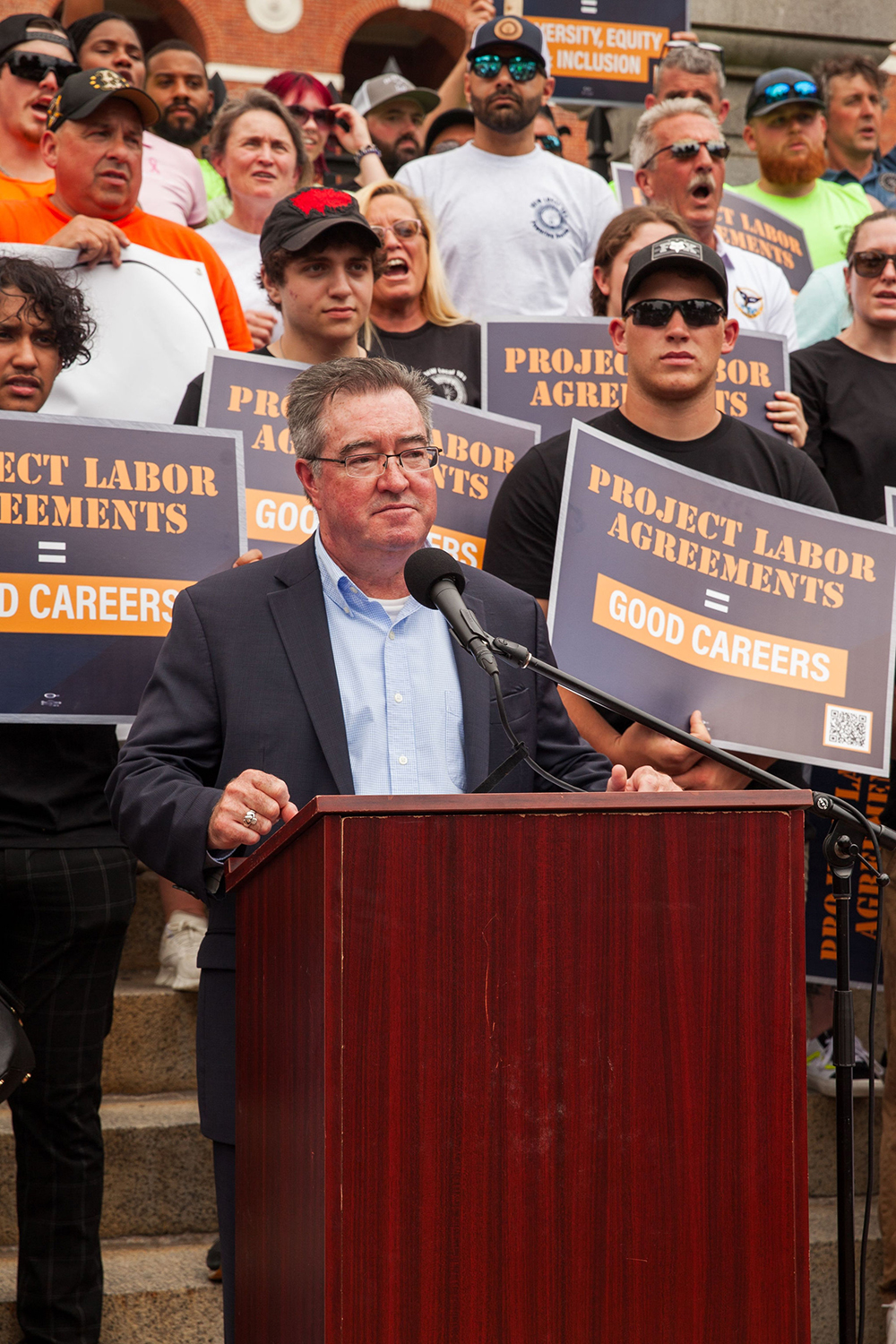
speaks at a Statehouse rally in support of Project Labor Agreements.
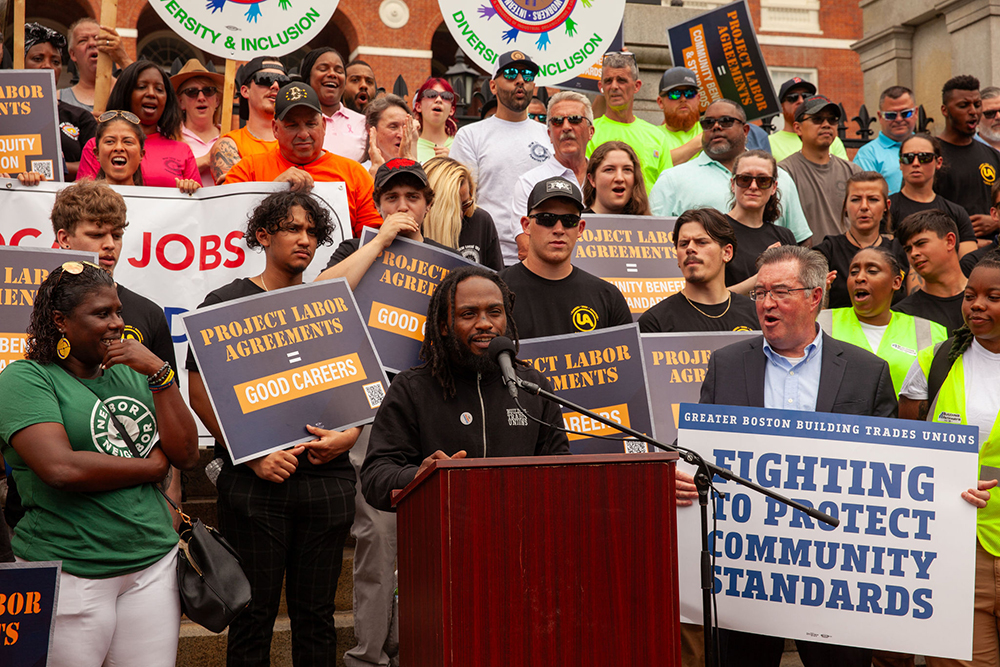
Boston, MA More than 700 construction workers and community supporters from across the Commonwealth converged on Beacon Hill in support of legislation calling for living wages, equitable pay, and apprenticeship opportunities that benefit underserved communities.
The rally was a major demonstration of worker and community solidarity aimed at protecting the rights of all workers in the construction industry. Speakers called for passage of House Bill 3012, sponsored by representative Marjorie Decker, and Senate Bill 2027, sponsored by senator Paul Mark, which would advance the utilization of Project Labor Agreements (PLAs) throughout the Commonwealth. PLAs establish employment terms and conditions for both union and non-union workers on a construction project. Advocates point to the fact that PLAs ensure projects are built by well-trained workers – which means more projects being built right, built on time, and on budget.

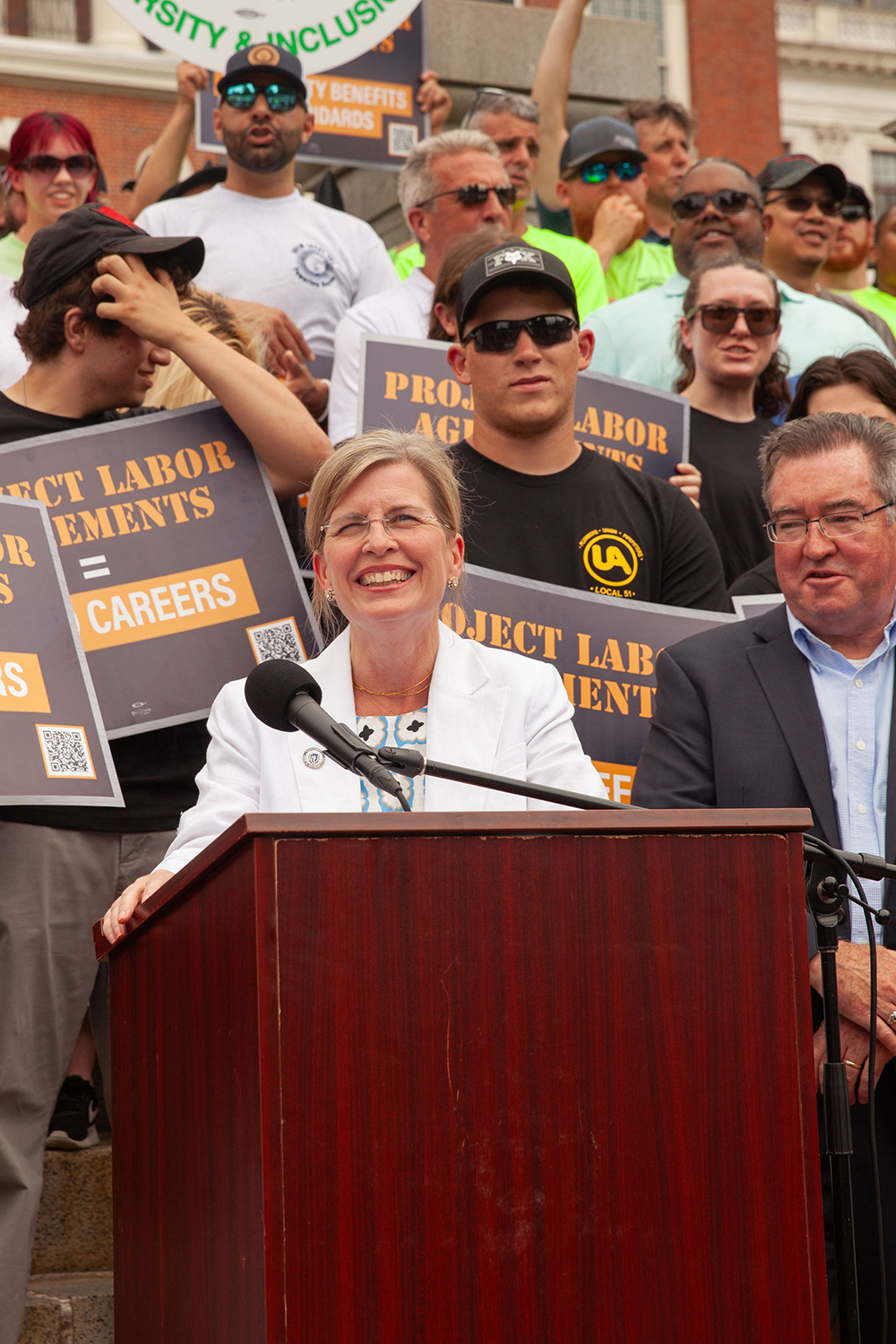
“My career started from a project labor agreement, as did many of the workers here today,” said Sprinklerfitters 550 member and Greater Boston Building Trades Union representative Chaton Green. “Project labor agreements are economic justice agreements that create pathways to the middle class. Project labor agreements ensure family-sustaining wages.”
Speakers noted that requiring projects using public funds to include measures to provide workers with fair wages would help working-class families and local communities throughout the Commonwealth. It would also ensure that taxpayer money is spent on quality building projects.
“When a Project Labor Agreement is used, right away the playing field is leveled, and the message has been delivered to everyone that this job will get done, but not on the backs of those who are doing the hard work every day,” said state representative Decker.
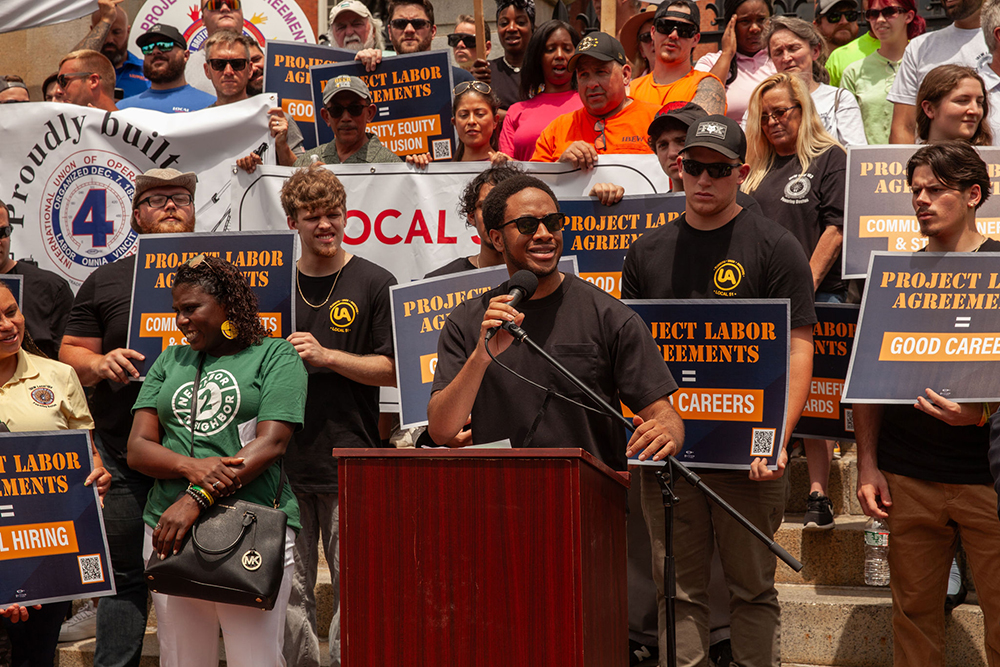
“We’ve got cities and towns lining up all across Massachusetts saying ‘how do we do a project labor agreement? How do we build our projects on time and on budget, and make sure that the workers get everything they deserve?’” said Frank Callahan, president of Massachusetts Building Trades Unions.
“We believe in project labor agreements, we believe in the labor movement, and we believe in equity and justice,” said Darlene Lombos, president and principal officer of the Greater Boston Labor Council (GBLC).
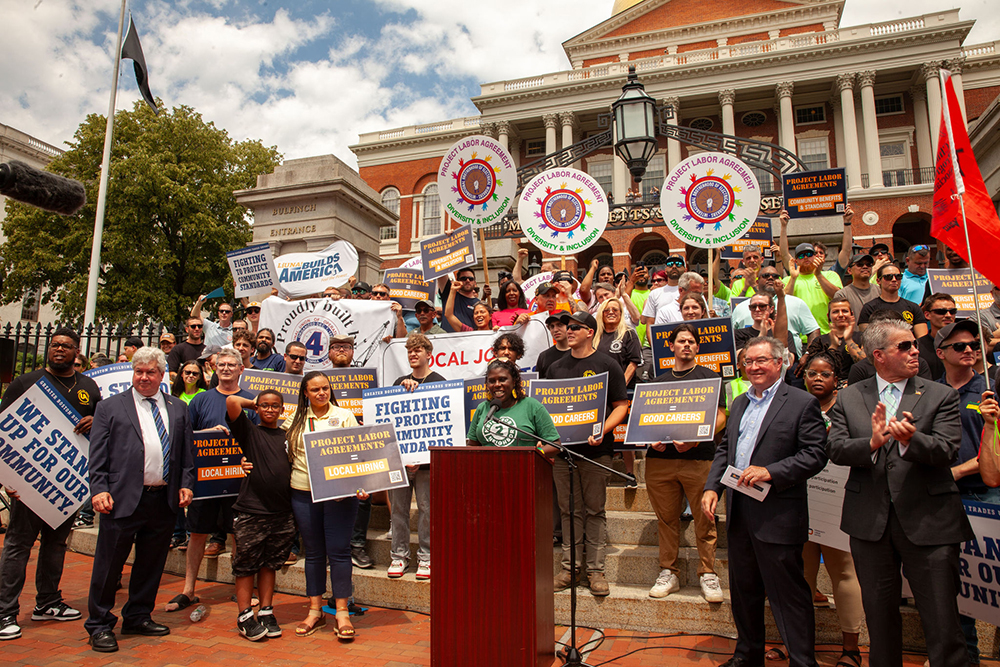
Adopting PLAs would also bolster the state’s ability to secure federal funding for major projects. The United States Treasury Department and Internal Revenue Service recently encouraged developers to consider Project Labor Agreements as a best practice to secure significant tax incentives for clean energy projects through the Inflation Reduction Act (IRA).
“The Biden Administration is yielding $9 billion to the state of Massachusetts alone,” said Ziquelle Smalls, senior organizer with Community Labor United, a non-profit that works to strengthen working-class families and communities throughout Greater Boston. Smalls unveiled a report detailing the benefits of PLAs, noting that “PLAs are key to fostering environmental justice and a more sustainable green economy.”
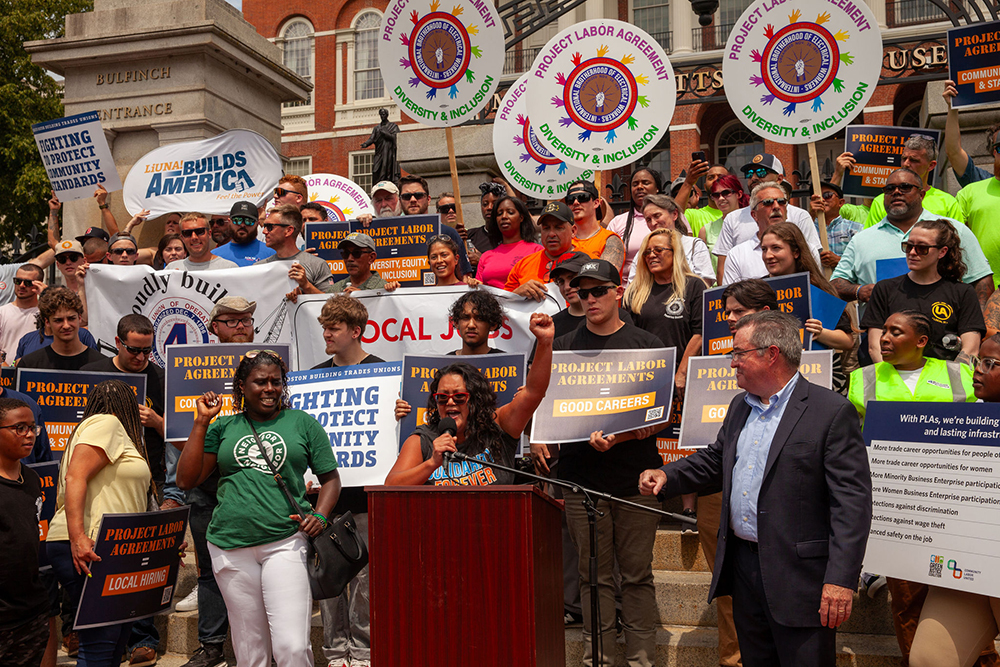
Massachusetts Building Trades Unions represent more than 75,000 hardworking tradeswomen and men in union building trades across the state.
Dalida Rocha, executive director of Neighbor to Neighbor Massachusetts said PLA agreements will help low-income and working-class families throughout the Commonwealth “to access family-sustaining good careers. Opportunities for people of color, women, and working-class Massachusetts residents. People who too often have been excluded from good careers.”




